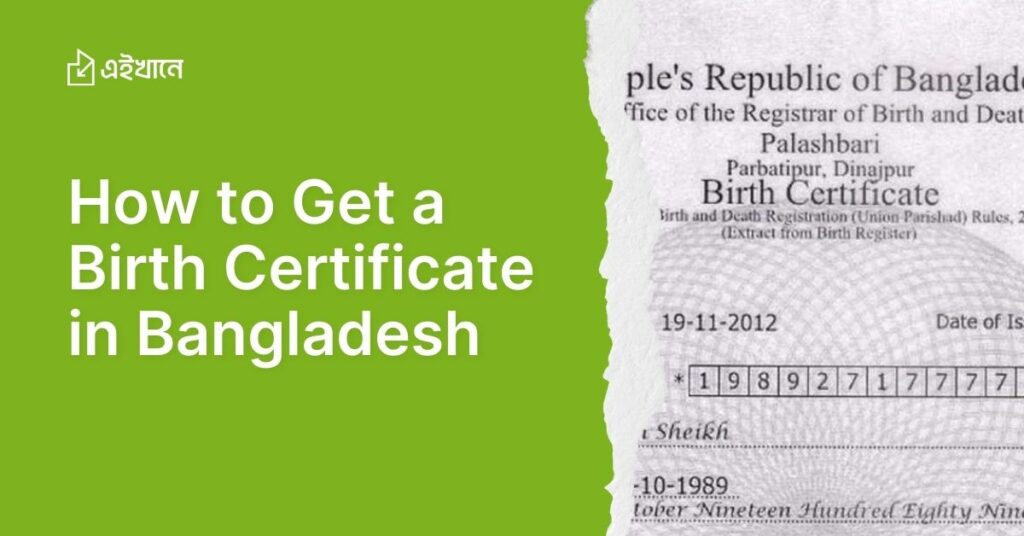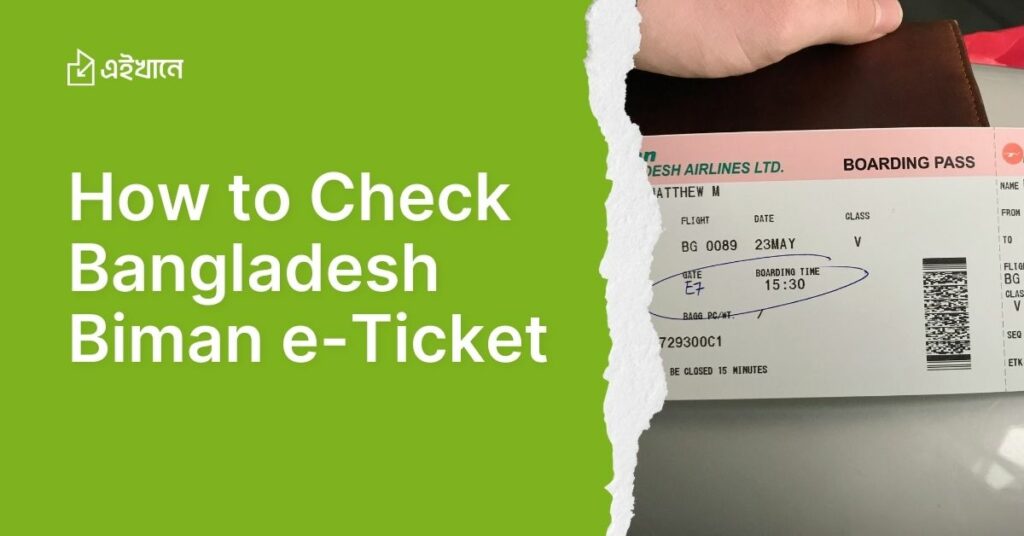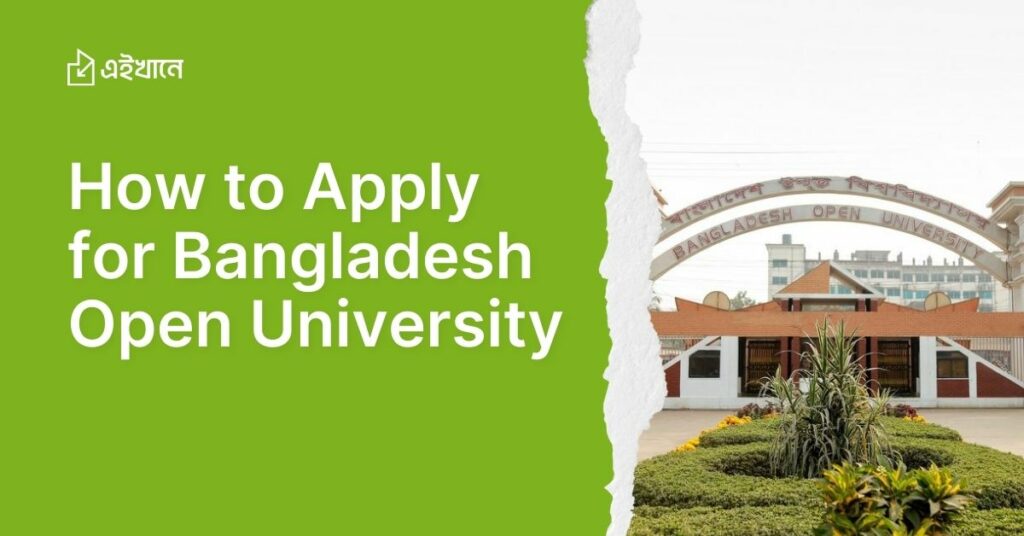Step-by-Step Guide: Obtaining Your Birth Certificate in Bangladesh
Step 1: Check Eligibility
Before applying for a birth certificate, it’s essential to ensure you are eligible. Generally, any Bangladeshi citizen born within the country is entitled to have their birth registered and receive a birth certificate. If you were born in a foreign country but hold Bangladeshi citizenship, you will also need to have your birth registration completed via the appropriate channels.
Step 2: Gather Required Documents
To apply for your birth certificate, you will need some key documents. These generally include an identification card or passport, proof of birth through a medical or hospital-issued document, addresses of parents, and other necessary information like parental identification documents. Make sure to gather all required documentation ahead of time to avoid delays.
Step 3: Create an Account on the Birth Registration Information System (BRIS) Website
Visit the official Birth Registration Information System (BRIS) website at https://bris.lgd.gov.bd/. You will need to create an account using personal details such as your name, date of birth, and National ID or passport number. This account will allow you to submit a digital application and track the progress of your certificate request.
Step 4: Fill Out the Online Application Form
Once you’ve created an account on BRIS, log in, and fill out the online form for birth registration. Enter accurate information, including full name, date of birth, place of birth, and the names of your parents. Make sure all details match the documents you previously gathered to avoid discrepancies that could delay the process.
Step 5: Submit the Form and Pay Any Fees
After completing the form, submit it online via the BRIS portal. Depending on your location, you may be directed to pay a small processing fee. Many local authorities offer free birth registration, but additional fees might apply if you require expedited service or corrections.
Step 6: Visit the Local Union Parishad Office (If Required)
In many cases, your birth certificate will be processed online without needing to visit a local office. However, if there are discrepancies or additional verification needed, you may be asked to visit your local Union Parishad, City Corporation, or Municipality office. Be sure to bring original copies of all supporting documents when visiting.
Step 7: Receive Your Digital Birth Certificate
Once your application is approved, you will receive your digital birth certificate via the BRIS system. This can typically be downloaded directly from the website. The digital version is legally valid for most purposes, but if a physical copy is required, you may need to visit the local government office where the record was registered.
Step 8: Obtain a Physical Copy (If Necessary)
If a hard copy of the birth certificate is required, you can request one at the Union Parishad, City Corporation, or Municipality where your birth was registered. You may need to pay a nominal fee for the physical certificate, depending on the office and region.
Step 9: Verify the Information on the Certificate
Once you receive your digital or physical birth certificate, carefully review all the details listed, such as name, date of birth, place of birth, and parents’ names. If there are any errors, make sure to request corrections immediately through the BRIS portal or by visiting the local government office.
Understanding the Birth Certificate Application Process in Bangladesh
What is a Birth Certificate?
A birth certificate is an essential legal document that serves as proof of a person’s birth within Bangladesh. It includes key details such as the individual’s name, date, and place of birth, along with the names of parents. This document is required for various purposes like obtaining a passport, enrolling in educational institutions, or securing employment.
Importance of a Birth Certificate
A birth certificate holds immense significance in establishing your identity as a citizen of Bangladesh. It not only certifies your nationality but also serves as an important document required for obtaining government services. Without it, accessing basic services, such as health care and education, can be challenging. It also plays a pivotal role in property inheritance, getting married, and even voting.
Online vs Offline Application Methods
In Bangladesh, applying for a birth certificate can be done either online or offline. The online method involves using the Birth Registration Information System (BRIS) portal, where you can fill out the application form digitally and track its progress. The offline method typically involves visiting your local Union Parishad, City Corporation, or Municipality office to submit the necessary documents in person. For most people, the online method is more convenient and time-efficient.
The Role of the Birth Registration Information System (BRIS)
The BRIS system, developed by the Local Government Division of Bangladesh, streamlines the birth registration process across the country. Through this platform, citizens can apply for birth certificates, update their details, and even request corrections in case of errors. The online submission feature ensures that the entire process becomes quicker and more transparent, offering applicants real-time access to the status of their requests.
Eligibility for Birth Certificate Application
Any Bangladeshi citizen, whether born within Bangladesh or abroad, is eligible to apply for a birth certificate. However, if you were born outside Bangladesh, you might need to present additional documentation proving your citizenship status. It is important to ensure that all information provided during the application aligns accurately with government records to avoid any complications during the process.
Key Documents Required for the Application
To complete the birth certificate application, several documents are required. These include identification proof (National ID or passport), a medical or hospital-issued birth record, and information about the applicant’s parents, such as their IDs and addresses. Other supporting documentation, such as school certificates, may also be requested depending on the circumstances of the birth or location of the application.
Deadlines and Late Registrations
Though it is encouraged to register a birth immediately after it occurs, the government allows for birth registrations at any point in time. However, if the birth is not registered within 45 days, a delayed registration process is followed. In such cases, additional documents may be required, and certain fees could apply for late processing. Depending on how long ago the birth occurred, verification from local authorities may also be needed.
Common Challenges During the Application Process
While the BRIS system has simplified the birth registration process, applicants may still face challenges such as discrepancies in records, missing documents, or network issues that delay online submissions. Language barriers or lack of internet access in rural areas can also make online applications difficult. For those who encounter these issues, visiting the local administrative office for manual submission is often the recommended alternative.
How to Correct Errors in a Birth Certificate
If you discover any errors on your issued birth certificate, such as incorrect spelling of names or incorrect dates, you can request corrections via the BRIS portal. If you applied offline, you should return to the issuing office with the correct documents to initiate the correction process. Corrections are typically processed within several weeks, although the timeframe may vary depending on the nature of the errors and the office handling the correction.
Additional Fees and Charges
Although birth registration is generally free in Bangladesh, there may be nominal fees applicable in certain situations. For instance, expedited service may require an extra charge. Similarly, physical copies of the birth certificate may be subject to printing fees, depending on the requesting office. Make sure to verify any official costs with your local office or through the BRIS system to avoid unnecessary expenses.
Required Documents and Fees for Getting a Birth Certificate in Bangladesh
Identification Documents
One of the primary requirements for obtaining a birth certificate in Bangladesh is submitting proof of identity. This could include a National ID card, passport, or any other recognized form of government-issued identification. These documents serve to verify the identity of both the applicant (if they are of age) and their parents. For those applying on behalf of minors, parental ID documentation will be crucial.
Proof of Birth
A medical or hospital-issued birth record is generally required as proof of birth. If you were born in a medical facility, the hospital should be able to provide this record. In cases where individuals were born at home or in rural settings, alternative documentation such as a signed affidavit from a respected community leader or birth attendant may be acceptable.
Parental Information
The birth certificate application also requires detailed information about the applicant’s parents. This includes their full names, national IDs, and residential addresses. In certain situations, supporting documentation like marriage certificates may be requested to confirm parental details. It’s essential to ensure that the information provided matches the records available with local authorities to avoid delays.
Attestation from Local Authorities (For Late Registrations)
If the birth registration is being processed after the standard 45-day period has passed, additional documentation may be required. This could involve attestation or certification from local authorities, such as the Union Parishad Chairman or Ward Councillor. In some cases, a police report might also be necessary to confirm the authenticity of the delayed registration.
Fees for Birth Registration
Birth registration in Bangladesh is typically free if completed within the first 45 days of birth. However, if you’re registering outside this window, there may be associated fees. Late registration charges vary based on how long after the birth you’re applying. Additionally, certain administrative costs may apply if you require expedited services or if special corrective actions are needed.
Charges for Physical Copies
While the digital birth certificate is free to download through the BRIS system, some applicants may require a physical copy for legal or official purposes. The cost of obtaining a printed copy of your birth certificate depends on the region and office handling the request. Typically, these fees are minimal but may vary depending on local regulations.
Additional Fees for Corrections
If any errors are found on your birth certificate, corrections can usually be made via the BRIS portal for a nominal fee. If manual changes are required through your local government office, an additional charge might apply, especially if the correction involves multiple revisions or extensive verification processes.
Online vs. Offline Methods of Birth Certificate Registration in Bangladesh
Convenience of Online Registration
The online birth registration process in Bangladesh, facilitated through the Birth Registration Information System (BRIS), offers a more convenient option for applicants who have access to the internet. With the ability to complete the application from home, users can avoid the need to physically visit local government offices. This method allows individuals to quickly fill out forms, upload necessary documents, and monitor the status of their application online. Moreover, the digital nature of BRIS makes it easier to correct mistakes and resubmit applications without much hassle.
Steps Involved in Offline Registration
For those who lack internet access or prefer in-person services, the offline method requires visiting your local Union Parishad, City Corporation, or Municipality office. Applicants need to gather all required documents and submit them directly at the respective office. While this method may provide the advantage of immediate human assistance, it can be time-consuming due to the physical process, long queues, and limited office hours. Additionally, manual entries in local databases may increase the chances of clerical errors that lead to delays or complications.
Processing Time: Online vs. Offline
One of the significant advantages of online registration via BRIS is the faster overall processing time. Since most steps are digital, the entire process—from application submission to certificate approval—is often quicker than the offline alternative. However, in case discrepancies arise, additional verification may still be required through a local office. On the other hand, offline registration tends to take longer due to the need for manual documentation, data entry, and on-site verifications. Applications submitted via the offline method could face delays if local office resources are limited.
Corrections and Updates
Another critical difference between the two methods is how corrections and updates are handled. Online applications that contain errors can be easily corrected by logging into the BRIS portal, submitting a correction request, and re-uploading any necessary documents. For offline registrations, any corrections generally require revisiting the local office where the original application was submitted. This process might involve filling out additional forms and presenting new documentation to substantiate the requested changes, making it more cumbersome compared to the online method.
Accessibility Challenges
While the online system offers numerous conveniences, it may pose challenges for those in rural areas or communities with limited internet connectivity. Some citizens may also struggle with navigating the online platform due to language barriers or lack of digital literacy. In these cases, the offline method provides an alternative but can introduce its own set of difficulties, including long travel distances to local offices and limited office hours, particularly in more remote regions of the country.
Cost Implications
Registering for a birth certificate within the stipulated timeframe (45 days) is free irrespective of whether you apply online or offline. However, cost differences may emerge when requesting expedited services, obtaining physical copies, or making corrections. In the context of online registration, fees are typically displayed transparently on the BRIS portal, and payments can be made digitally. Conversely, some local offices may impose nominal administrative fees even for basic services, making the offline route potentially more costly in certain regions.
Which Method is Best for You?
If you have reliable internet access and are comfortable navigating the BRIS system, online registration is likely the better option for its sheer convenience, quicker processing, and smoother correction mechanisms. It’s also ideal for busy individuals who cannot afford to spend time visiting local offices. On the other hand, those living in areas with poor internet access, who require direct assistance or have more complex document situations, may find the offline method more suitable despite the added time and effort involved.
Common Mistakes to Avoid When Applying for a Bangladeshi Birth Certificate
Submitting Incomplete or Incorrect Documents
One of the most common mistakes during the birth certificate application process in Bangladesh is submitting incomplete or incorrect documents. Applicants often forget to provide key documentation such as National IDs or proof of birth from a medical facility. Even minor discrepancies in these documents, such as spelling errors or mismatched information, can result in application rejection or delays. Make sure you thoroughly check your documents before submission to avoid this mistake.
Entering Incorrect Information in the Application Form
Another frequent error is entering incorrect personal information in the application form. This can include the wrong spelling of names, incorrect dates, or mismatches with official records such as your national ID or passport. Even small mistakes like switching the order of your first and last name can cause significant delays in processing. Double-check all entries for accuracy before submitting your form online or offline.
Delaying the Registration Beyond the Permitted 45 Days
Many applicants delay the birth registration process beyond the standard 45-day period after birth. While late registration is still possible, it involves additional steps, such as obtaining attestation from local authorities and possibly paying late fees. To avoid this hassle, it’s important to register the birth as soon as possible. Early registration not only simplifies the process but also ensures you won’t have to deal with extra bureaucracy.
Failing to Update Existing Records Before Applying
If there are discrepancies in your official records, such as outdated parental information or an unregistered change of address, applying for a birth certificate without updating those records can lead to complications. Failing to ensure that all relevant government records are up to date may increase the chances of your application being flagged for inconsistencies. It is recommended that you verify and correct any discrepancies in your National ID or passport information before initiating the birth certificate application.
Not Verifying the Information on the Issued Certificate
Once the birth certificate is issued, many applicants neglect to carefully review the details for accuracy. Overlooking minor errors such as incorrect date of birth, misspellings, or misrepresentations of parent names could lead to problems later on when using the document for legal purposes. Always scrutinize your issued birth certificate and request immediate corrections to avoid future complications, especially if the certificate will be used for passports, school admissions, or employment.
Paying Unnecessary Fees
While birth registration is generally free in Bangladesh if completed within the designated timeframe, some applicants mistakenly pay unwarranted fees either due to misinformation or by misunderstanding the process. Be aware that charges typically apply only for expedited services, late registrations, physical copies, or corrections. Ensure that you are informed about any legitimate fees through the official BRIS website or your local office to avoid paying more than necessary.
Skipping the Local Office Visit When Required
Even though most applications can be processed entirely online, certain situations may require a visit to your local Union Parishad, City Corporation, or Municipality office—especially when discrepancies need resolution or verification of submitted documents. Some applicants mistakenly assume their application will be automatically approved online, only to face extended delays because they neglected to complete required in-person verifications. Always follow up on whether a local office visit is needed based on system notifications or instructions.
Rushing Through the Correction Process
In cases where errors are found on the birth certificate, many applicants rush through the correction process without carefully reviewing the new details. Submitting incorrect information for a second time can prolong the corrective procedure and lead to frustrations. When requesting corrections via the BRIS system or offline offices, take time to gather all necessary updated documents and ensure that every detail is thoroughly accurate before resubmission.


